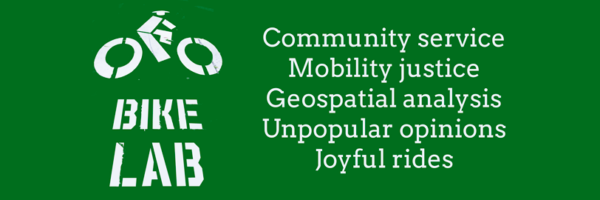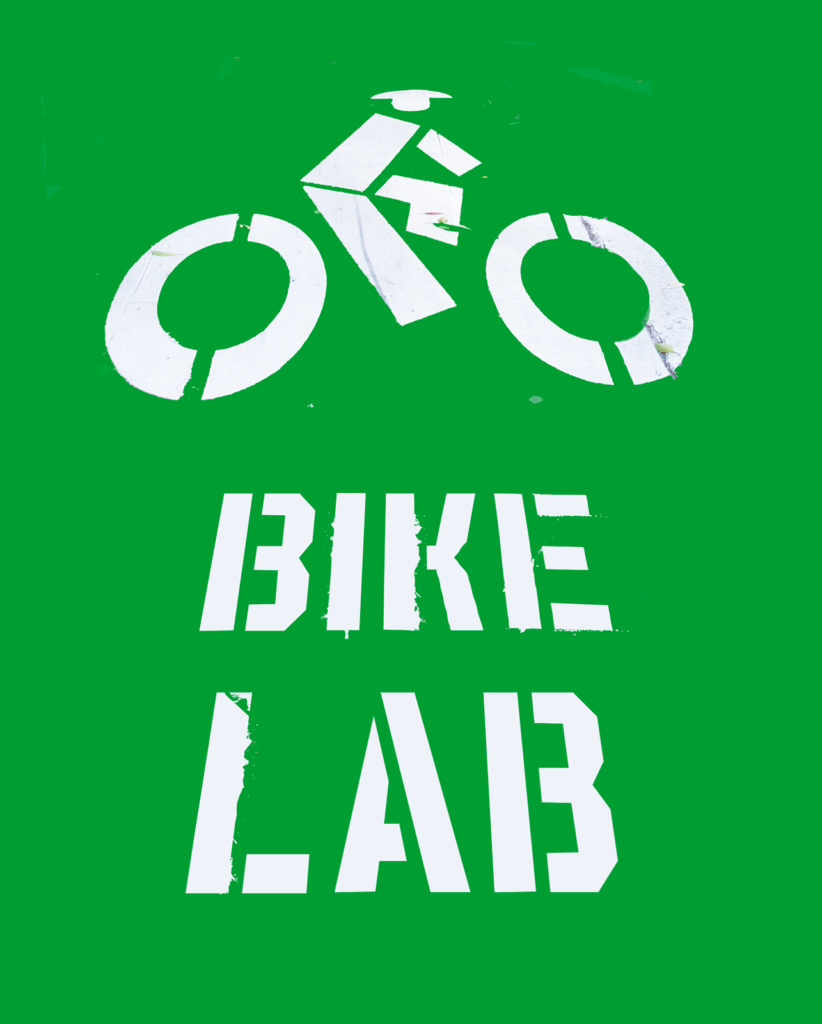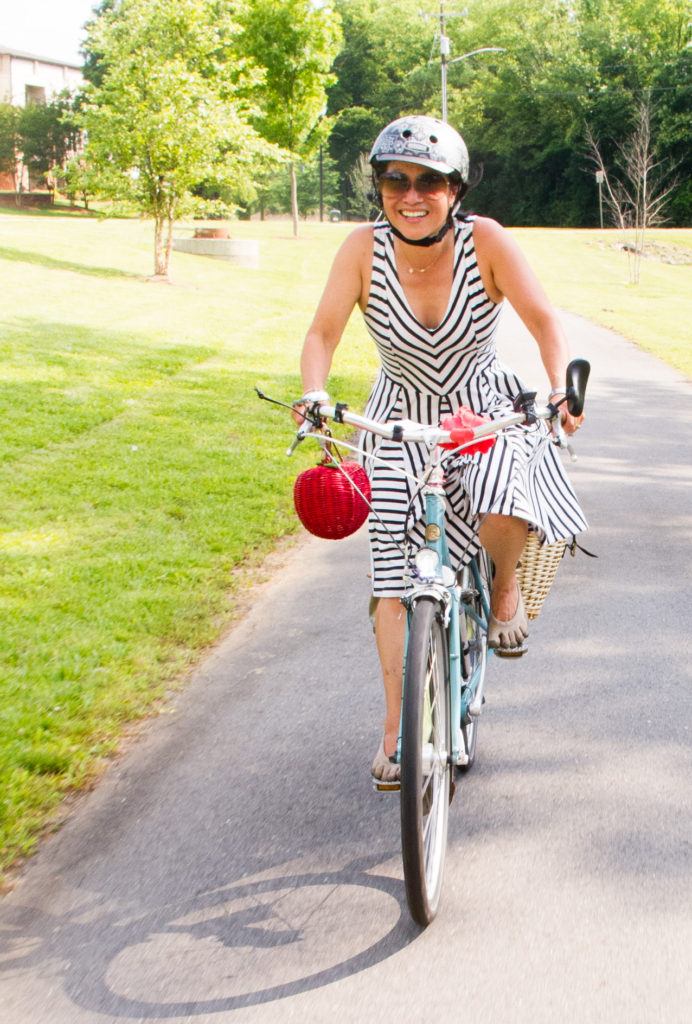I had a fascinating time at Untokening Durham, and I’ll be posting more about it as I finish my processing. My initial impression is that Durham seems a little like the Oakland of 20 years ago: disinvested from, beginning to see reinvestment, experiencing the pressures of gentrification and displacement, and seeing a strong Black community pushing back for recognition and protection. I am reflecting on of some of the great sessions and conversations I had, especially with Aidil Ortiz (City of Durham), Aya Shabu (Whistle Stop Tours), Oboi Reed (Slow Roll Chicago and Equitcity), Jonathan Stafford (Washington Area Bicyclist Association) and Josh Malloy and Bonnie Fan (City of Pittsburgh). But my most prominent memory right now is of riding to dinner.
A group of us had chosen a restaurant a few miles away. At a mobiIity conference people will explore many transportation options: one person had a bike, I had my unicycle, and a few others decided to grab scooters. Getting the scooters had its usual logistical problems, as people downloaded apps and wandered around looking for the things. Then we rode off together, but found out halfway through the ride that we’d gone outside the geofenced area, so one of the scooters crapped out and refused to move. Two people had to shuttle the non-working scooter back to the legal area, a third person called for an Uber to pick them all up, and those of us with our own wheels rode on to the restaurant together.
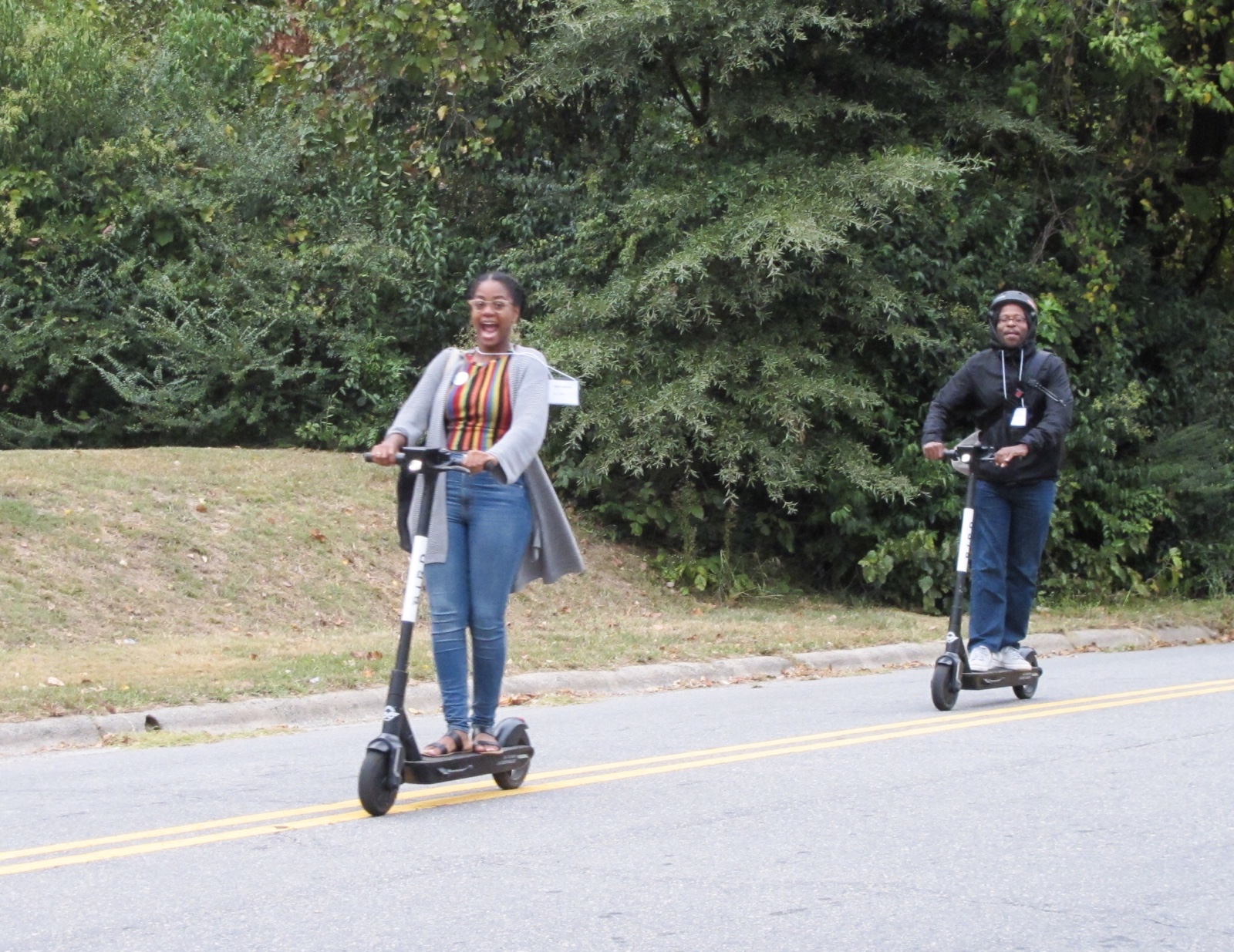
The group dynamic felt unusual, in a positive way. At each step of the micromobility saga, the group did a lot of checking in on how everyone was doing, and what we collectively needed to do to be safe. We focused on making sure that no one was left alone. And at the end of our meal, as I was preparing to ride to the friend’s house where I was staying, two different people loaned me lights, and a third asked me to email the group when I arrived home safely.
For me I think the evening highlighted one of the goals of Untokening, which is to create a safe community space for BIPOC working on mobility.
Mobility advocates and practicioners must find peers in places where the vulnerable and marginalized feel comfortable or have power. These community leaders must have access to conferences and information, to get exposed to different people and perspectives, and gain support once at the table. (Untokening Principles v. 1.0)
The group on our ride had bonded into a mini-community, and was displaying a collective concern for the safety and care of all. I was something of an outsider at the gathering, and felt honored and privileged to be included in that concern. I can’t think of anyone outside of immediate family or close friends who has asked me to check in with them to make sure I got home safely. I don’t think that would have happened at a traditional planning conference (nor at a tech conference, for that matter), and I think it speaks to underlying cultural values that we don’t examine very much.
U.S. bike advocacy exists in a culture which values individual choice as paramount, and the goals of advocacy reflect that underlying value. The stated-preference surveys which form the basis of the “four types of cyclists” model (now used in bike plans all over the country, including Oakland’s), are rooted in the idea that if we just figure out how people are motivated, we can get them to make different choices. (The model fails because stated-preference surveys are basically useless for that purpose). The philosophical framework of individual action also includes individual responsibility, which is partly why advocates encourage journalists to assign blame for collisions-not-crashes-not-accidents to each individual driver; we must assign blame to someone. To an individualist, my personal safety riding home in the dark is similarly my own responsibility. I might be advised to “be safe!”, but my personal safety is not seen as a collective concern.
What would a bike advocacy based on collective concern look like? I think we already see it in groups like Rich City Rides and Slow Roll. Those organizations have no political agenda beyond protecting their communities, and they do a good job of encouraging cycling while building community resilience. How could we better uplift their work? What could we do to advance humanistic cycling advocacy?
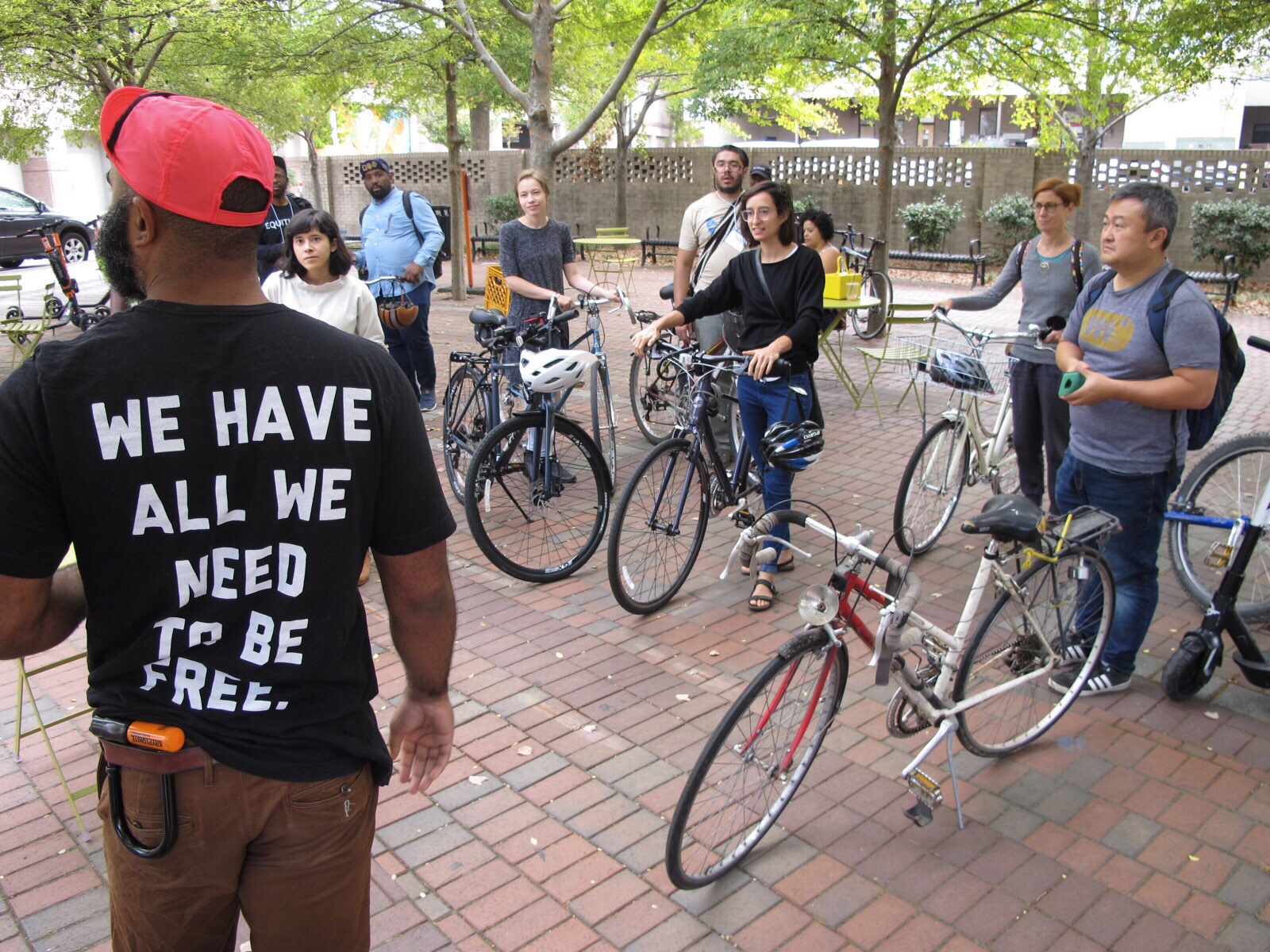
In November the Bay Area will have the fortune of a visit from Oboi Reed, and I’ll helping him to organize a Slow Roll-style ride with an equity focus in Oakland. We’ll hope to see a lot of human beings there. Stay tuned for details.
